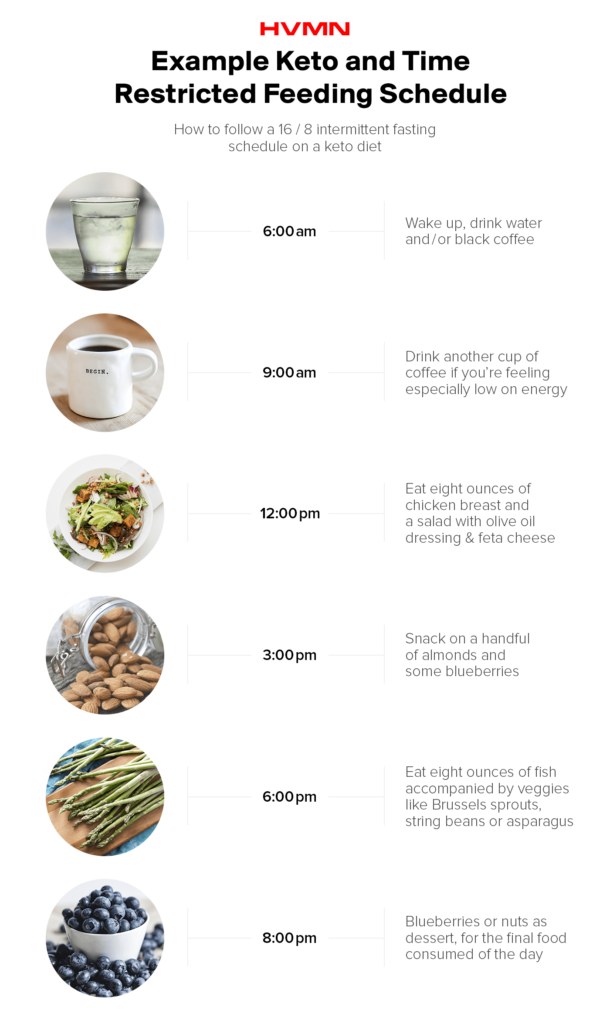The discussion centers around the intriguing comparison between consuming sardines and fasting, highlighting the potential health benefits each approach may offer. Dr. Boz, an expert in the field, emphasizes that the choice is highly personal and dependent on individual preferences and health goals. The Dr. Boz Channel is committed to promoting health improvement through education, with a specific focus on optimizing ketone levels to enhance metabolic function. In addition, viewers can benefit from weekly live sessions and a range of resources aimed at supporting a ketogenic lifestyle.
Exploration of topics such as belly fat and human physiology underlines the importance of understanding hormonal influences on weight management. Dr. Boz shares practical insights for effectively combating belly fat and achieving sustainable health. By encouraging the consumption of nutrient-dense foods like sardines, along with monitoring metabolic markers, viewers are equipped with actionable strategies to enhance their wellness journey.
Understanding the Basics of Fasting

Definition and Purpose of Fasting
Fasting is defined as the practice of abstaining from all or some types of food and drink for a defined period. The purpose of fasting varies among individuals—some may fast for spiritual or religious reasons, while others may do so for health benefits. It encourages the body to enter a state of ketosis, where it shifts from using glucose as its primary source of energy to burning fat. This metabolic transition can improve insulin sensitivity, promote cellular repair, and regulate various hormonal pathways.
Different Types of Fasting
There are several types of fasting that you can explore, including intermittent fasting, prolonged fasting, and alternate-day fasting. Intermittent fasting typically involves cycles of eating and fasting, often represented in schedules such as 16/8 or 5:2. Prolonged fasting entails abstaining from food for periods longer than 24 hours, while alternate-day fasting alternates between days of regular eating and days of significant caloric restriction. The ideal fasting method is subjective and dependent on individual goals and lifestyle.
Health Benefits Associated with Fasting
Research indicates numerous health benefits associated with fasting, ranging from metabolic enhancements to improved mental clarity. Fasting has been linked to weight loss, improved blood sugar control, reduced inflammation, and enhanced heart health. Additionally, studies suggest it may have neuroprotective properties, which could benefit brain health, and potentially increase longevity. Understanding these benefits can help you make informed decisions about whether fasting aligns with your personal health objectives.
The Nutritional Power of Sardines
Nutritional Breakdown of Sardines
Sardines offer an impressive nutritional profile, making them a compelling addition to your diet. They are rich in protein, omega-3 fatty acids, and essential vitamins and minerals, including vitamin B12, selenium, and vitamin D. A typical serving of sardines can provide a substantial portion of your daily nutrient requirements while being low in calories. This nutrient density helps you meet your dietary needs without excessively increasing caloric intake.
Benefits of Omega-3 Fatty Acids
Omega-3 fatty acids, primarily found in fish like sardines, play a crucial role in maintaining optimal health. They are known to support heart health by reducing triglycerides, improving cholesterol levels, and decreasing blood pressure. Beyond cardiovascular benefits, omega-3s are also vital for brain health and may help alleviate symptoms of depression and anxiety. Incorporating sardines into your meals can increase your omega-3 intake, promoting overall wellness.
How Sardines Support a Ketogenic Diet
Sardines are an excellent source of healthy fats, making them highly compatible with a ketogenic diet. A ketogenic diet, focused on high-fat, moderate protein, and low carbohydrate intake, encourages the body to burn fat for fuel. The fats present in sardines can aid in maintaining ketosis while minimizing overall caloric intake. Their protein content can also help preserve muscle mass during weight loss, making them a nutrient-rich option for those following a ketogenic lifestyle.
Sardines vs. Fasting: A Comparison
Caloric Intake vs. Caloric Deficit
When evaluating the consumption of sardines versus fasting, it is essential to consider the caloric intake associated with each approach. Fasting induces a caloric deficit by restricting food consumption, which generally leads to weight loss. On the other hand, including sardines in your diet provides essential nutrients while still maintaining reasonable caloric levels. The trade-off between nutrient intake and caloric deficit will depend on your individual health goals and preferences.
Metabolic Effects of Sardines and Fasting
The metabolic effects of consuming sardines and fasting can be quite distinct. Fasting activates metabolic pathways that enhance fat oxidation and insulin sensitivity, often leading to a shift in how energy is utilized by the body. Conversely, including sardines in your diet does not induce a fasting state but can be beneficial for sustained energy levels and overall metabolic health due to their protein and fat content. A balanced approach, which may include both practices, might be optimal for some individuals.

Long-term Sustainability of Eating Sardines
From a sustainability perspective, including sardines in your diet may prove more manageable in the long term compared to periodic fasting. While fasting can provide notable health benefits, it may be challenging for some individuals to maintain consistently. Passing up meals can present social challenges or make it difficult to fuel your body adequately for physical activity. In contrast, consuming sardines regularly can provide essential nutrients, satisfy hunger, and contribute to overall dietary satisfaction.
The Role of Ketones in Health
What are Ketones?
Ketones are organic compounds that are produced by the liver from fatty acids during periods of low food intake, carbohydrate restriction, or intense exercise. They serve as an alternative energy source for the brain and body when glucose is in limited supply. Understanding the role of ketones is pivotal for anyone considering a ketogenic diet or intermittent fasting, as this knowledge can help navigate dietary choices effectively.
How Ketones Affect Weight Loss
The presence of elevated ketones in the body can significantly influence weight loss. When in a state of ketosis, your body becomes adept at burning fat for fuel, leading to increased fat mobilization and weight reduction. Higher levels of circulating ketones may also enhance appetite regulation, making it easier to adhere to a reduced-calorie diet. This dual effect of fat metabolism and appetite suppression positions ketosis as a beneficial state for those aiming for weight loss.
Promoting Ketone Production through Diet
To promote ketone production through diet, incorporate healthy fats, reduce carbohydrates, and moderate protein intake. Consuming foods rich in saturated and unsaturated fats, like avocados, nuts, and fish (including sardines), can stimulate ketogenesis. Additionally, intermittent fasting can also serve as a catalyst for increasing ketone levels, combining both dietary strategies may enhance metabolic flexibility and support achieving ketosis.
Practical Dietary Swaps for Fasting
Choosing High-Quality Fats
When adjusting your diet for fasting, selecting high-quality fats becomes crucial. Incorporating sources like avocados, olive oil, and sardines ensures that your body receives beneficial nutrients while promoting satiety. Prioritizing these fats may help alleviate the discomfort often associated with caloric deficits, making the transition to fasting more manageable.
Incorporating More Protein
Integrating more protein into your meals can also support your fasting practice. Protein is known for its satiating properties and the potential to preserve lean muscle mass during weight loss efforts. Including protein-rich foods such as eggs, chicken, and sardines can help you feel full longer, reducing the temptation to break your fast prematurely.
Fiber-Rich Foods to Enhance Satiety
Opting for fiber-rich foods can enhance satiety and support digestive health when fasting. Foods like leafy greens, vegetables, and legumes can be excellent choices to include in your pre-fasting meals. This incorporation of fiber not only helps maintain a sense of fullness but also aids in regulating blood sugar levels, leading to a more successful fasting experience.
Monitoring Health Metrics
Importance of Tracking Fasting Glucose Levels
Monitoring fasting glucose levels is essential for understanding how your body responds to dietary changes and fasting practices. Elevated glucose levels may indicate insulin resistance or inadequate metabolic function. By regularly checking your glucose levels, you can identify patterns that inform your dietary choices and fasting strategies, enabling you to fine-tune your approach for optimal results.

Utilizing A1C Test Kits
To facilitate tracking your blood sugar over time, consider incorporating A1C test kits into your health monitoring routine. These kits provide an average of your blood glucose levels over the last three months, offering deeper insights into your metabolic health. Regular feedback on your A1C can guide dietary decisions and support your fasting strategy, ensuring you stay on track toward your health goals.
Regular Ketone Measurement Techniques
Measuring your ketone levels can help you assess the efficacy of your fasting or ketogenic dietary practices. Using blood or urine ketone test strips allows you to identify whether you are in a state of ketosis. Understanding your ketone levels aids in fine-tuning your diet to optimize fat burning and improve overall metabolic function, making it a critical component of your health journey.
The Influence of Hormones on Fat Loss
How Insulin Affects Body Composition
Insulin is a critical hormone that influences body composition and fat storage. Elevated insulin levels can lead to increased fat storage, making weight loss challenging. When you consume carbohydrates, insulin levels rise, promoting glucose uptake and fat storage in adipose tissue. Understanding how to manage insulin levels through dietary strategies can support your weight loss efforts effectively.
The Role of Estrogen and Testosterone
Estrogen and testosterone also significantly impact body composition, influencing how fat is stored and mobilized in the body. These hormones can affect metabolic rates and body fat distribution. Addressing potential hormonal imbalances through nutrition and lifestyle choices is essential for fostering a conducive environment for fat loss and overall health.
Addressing Hormonal Imbalances in Diet
To address hormonal imbalances effectively, consider adjusting your diet to include nutrient-dense foods that support hormonal regulation. Consuming healthy fats, fiber, and lean proteins can provide the necessary building blocks to support hormone production and balance. Strategies such as reducing sugar intake and incorporating anti-inflammatory foods can further enhance your metabolic profile and promote effective weight management.
Strategies for Managing Belly Fat
Understanding the 21-Day Metabolic Kick
The 21-Day Metabolic Kick is an approach designed to help jumpstart weight loss and promote fat mobilization. This strategy often includes dietary adjustments, exercise, and metabolic monitoring to challenge the body and amplify fat-burning processes. This structured program helps participants develop habits that can lead to sustainable weight loss and better health.
Combining Dietary and Physical Activities
Integrating both dietary and physical activity strategies can yield substantial benefits for managing belly fat. Combining a balanced diet rich in healthy fats and proteins with regular strength training and aerobic exercise enhances metabolic function. This multifaceted approach promotes fat loss while supporting muscle retention, ensuring effective weight management outcomes.
Importance of Consistency in Weight Management
Consistency is crucial when it comes to managing body weight and belly fat. Sticking to your dietary and exercise routines while addressing hormonal and metabolic factors can lead to long-term success. Setting realistic goals and tracking progress can also help maintain motivation and accountability, allowing for sustainable weight management.
The Educational Approach of the Dr. Boz Channel
Weekly Live Sessions and Their Benefits
The Dr. Boz Channel hosts weekly live sessions, providing a platform for you to engage directly with Dr. Boz. These sessions foster knowledge-sharing and community support, allowing you to gain deeper insights into health issues, dietary strategies, and metabolic health. Participating in live sessions can enhance your understanding and application of nutritional practices in daily life.
Free Online Courses for Nutritional Education
In addition to live sessions, the Dr. Boz Channel offers free online courses aimed at educating individuals about nutritional practices, focusing on keto and fasting principles. These courses can provide you with foundational knowledge to apply to your health journey, enhancing your ability to make informed choices regarding your diet and lifestyle.
Community Engagement and Support
The Dr. Boz Channel is dedicated to creating an engaged community where individuals can share experiences, challenges, and successes in their health journeys. This sense of community can provide invaluable support and motivation as you pursue dietary changes and health improvements. Engaging with peers can help you stay accountable and inspired on your path to better health.
Final Thoughts and Recommendations
Summary of Key Takeaways
Understanding the relationship between fasting, dietary choices, and hormonal regulation is crucial for effective weight management. Incorporating nutrient-rich foods such as sardines can provide essential fatty acids and proteins while promoting metabolic health. Monitoring health metrics is essential to track progress and adapt strategies accordingly.
Encouragement for Making Informed Choices
As you navigate your health journey, it’s important to make choices based on solid knowledge and understanding. Consider your personal health goals, engage with educational resources, and implement dietary strategies that resonate with you. By doing so, you can cultivate a sustainable approach to health and nutrition.
Inviting Ongoing Dialogue about Health and Nutrition
The conversation around health and nutrition is ever-evolving and best approached as a continuous exchange of ideas and experiences. Engage with the Dr. Boz Channel and community, sharing your insights and queries. This ongoing dialogue can significantly enhance your understanding and practice of effective health strategies over time.







